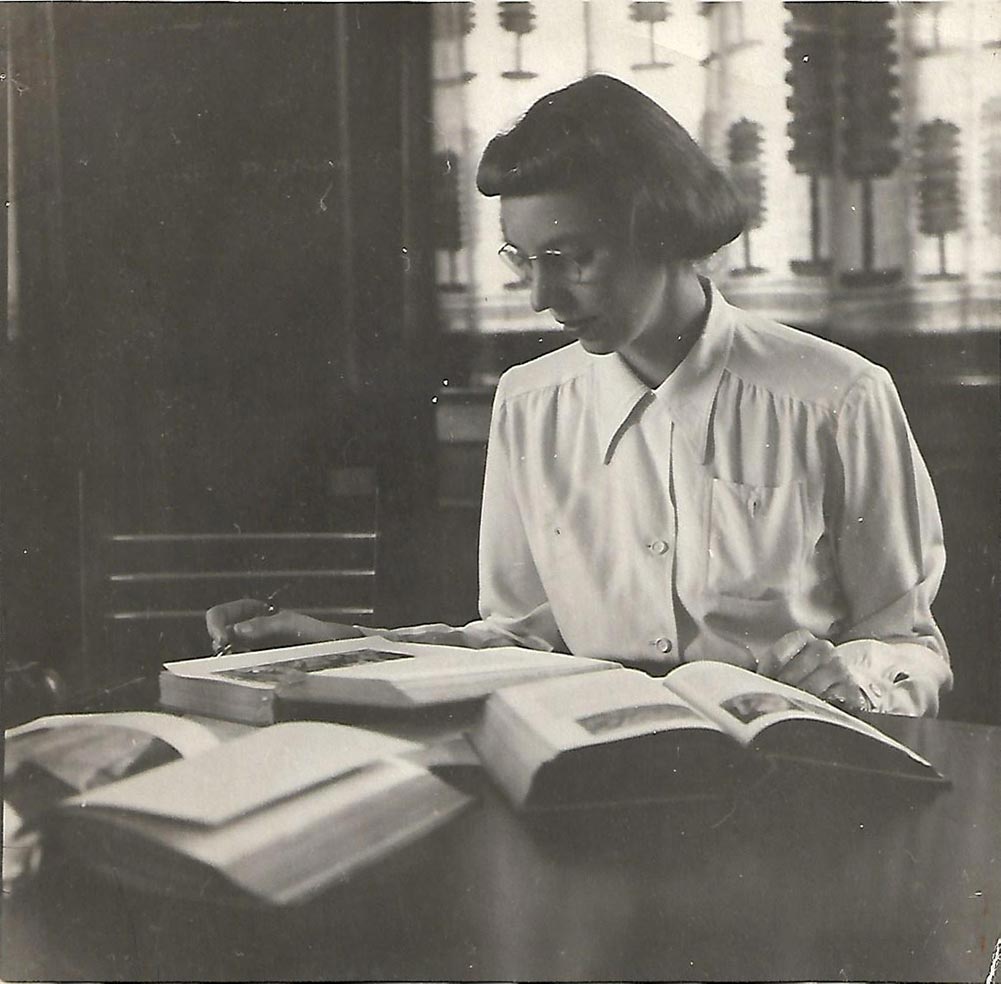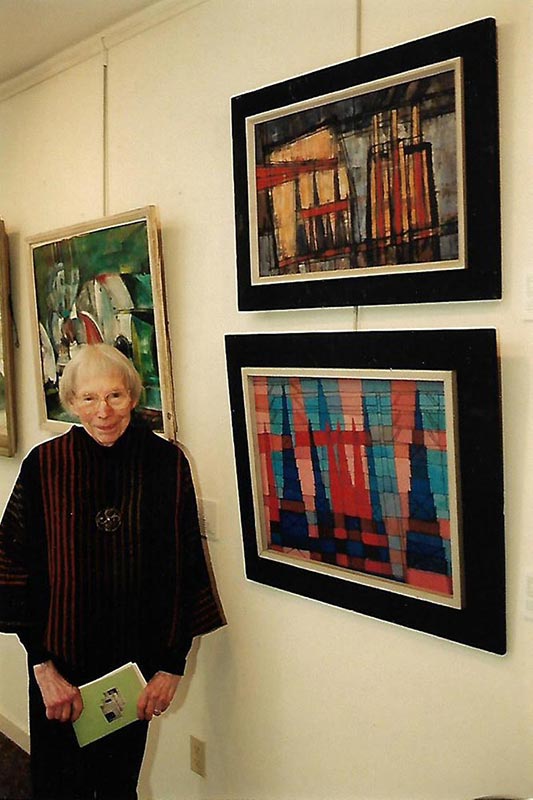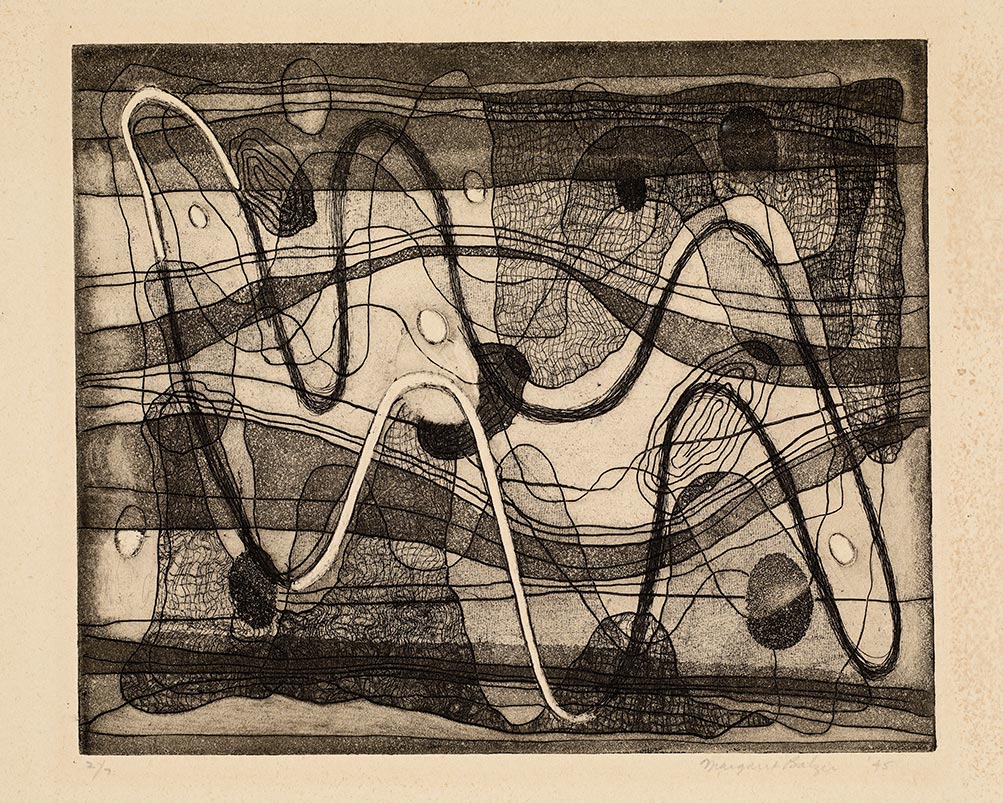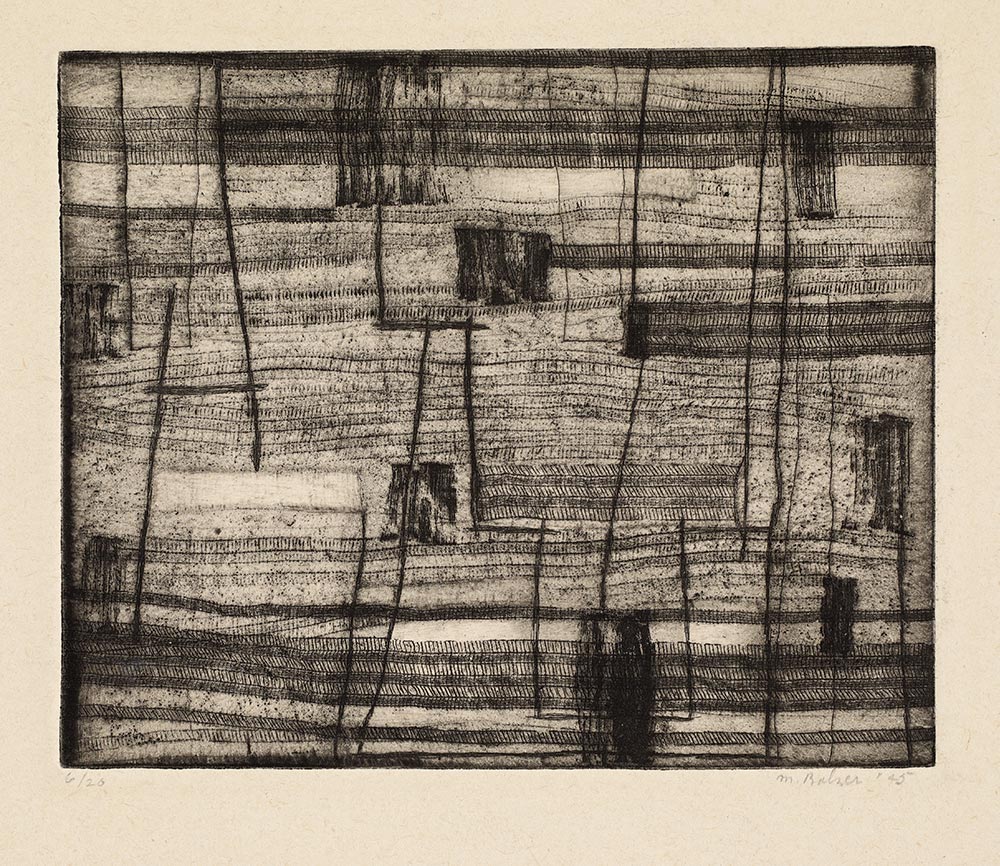6. Margaret Balzer Cantieni
| Life Dates | 1914-2002 |
| Place of Birth | Newton, KS, USA |
| Place of Death | Bethlehem, PA, USA |
| Birth Name | Margaret Balzer |
Margaret Balzer spent most of her childhood and young adulthood in the Midwest. Born in Newton, Kansas, her family moved to Northfield, Minnesota where her father, a Congregationalist minister, took a faculty position at Carleton College, his alma mater and eventually hers (she would graduate in 1936). The following year, Balzer simultaneously attended the School of the Art Institute of Chicago and what was then called the New Bauhaus, studying primarily with the Hungarian émigré Gyorgy Kepes, who headed the curriculum in Light and Color. In 1937, she took a fulltime faculty position at Berea College, a small liberal arts college in rural Kentucky, recruited by her undergraduate art teacher and mentor, Mary Ela, who served as chair of the college’s art department. Although remaining in Kentucky until 1945, Balzer took advantage of opportunities to expand her exposure to Bauhaus-inspired principles, participating in László Moholy-Nagy’s summer session at Mills College in 1940 and attending summer classes at Black Mountain College in 1945, studying color and design with Josef Albers and architecture with Paul Beidler. She also made a strong impression on Lyonel Feininger, who told Albers she was one of the most eager students to attend his meetings at Black Mountain.1 Newly married in 1946 she and her husband, fellow artist and Berea faculty member Joseph Cantieni, set out to live in New York City where she attended Atelier 17. There she absorbed Hayter theories about compositional “counterpoint,” which would have appealed to her interests in merging sound with the visual. In later interviews, she affirmed her abiding commitment to bring a spiritual focus to abstraction: “We just wanted to enlarge our visual language and liberate ourselves from dependence on the object itself. We wanted to get to the inner core.”2 The Cantienis moved to Allentown, Pennsylvania in 1948 when Joseph was appointed to the faculty at Muhlenberg College (eventually, though, he would serve as the artistic director of Bethlehem Steel). Margaret continued to teach locally in the Lehigh Valley (Swain School, Allentown; The Baum School, Allentown; and Southern Lehigh Public School) and remained active as an artist until her death.
Archives
Black Mountain College Papers, Western Regional Archives, State Archives of North Carolina Department of Natural & Cultural Resources.
Special Collections & Archives, Hutchins Library, Berea College, Berea, Kentucky
Doris Ulmann Galleries, Berea College, Berea, Kentucky
Selected Bibliography
Bier, Justus. “Young Berea Painter, Margaret Balzer, Is Talented.” The Courier-Journal. March 17, 1946.
Larson, Janice Carter. Painting the Halls of Heaven: Life and Works of Margaret Balzer Cantieni. Bethlehem, PA: Payne Gallery of Moravian College, 2004.
Notes
- Lyonel Feininger to Josef Albers, September 17, 1945, Summer Institute 1945 Margaret Balzer application file, Black Mountain College Papers, Western Regional Archives, State Archives of North Carolina Department of Natural & Cultural Resources. ↩
- Janice Carter Larson, Painting the Halls of Heaven: Life and Works of Margaret Balzer Cantieni (Bethlehem, PA: Payne Gallery of Moravian College, 2004). ↩



